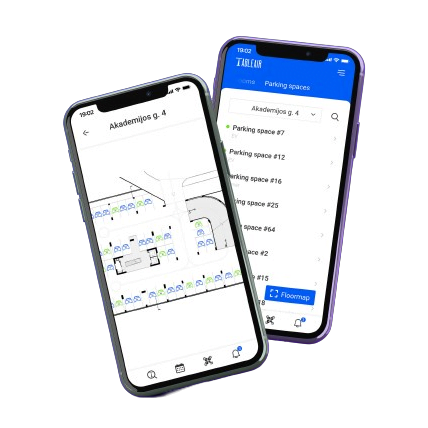
In the hustle and bustle of modern office life, one often overlooks the importance of a seemingly mundane aspect – office parking. Yet, this overlooked facet can significantly impact the daily lives of employees and the overall efficiency of an organisation. Office parking goes beyond just providing spaces for cars. It affects how happy employees are and contributes to the overall functioning of the workplace community.
Limited and inefficient parking options can adversely affect employee satisfaction and retention. Difficulty finding parking spaces or dealing with the associated stress can lead to a higher turnover rate as employees seek workplaces with better parking facilities.
Employees spending significant time searching for parking spots or dealing with congestion may experience reduced productivity. These inefficiencies can have ripple effects on daily work routines, impacting deadlines and overall work output.
Companies may face financial implications related to parking, including the cost of maintaining parking facilities, potential subsidies or discounts offered to employees, and the impact of parking-related challenges on the company’s bottom line.
A lack of adequate parking can negatively affect corporate image. It may be perceived as a reflection of the company’s commitment to employee well-being and can influence the company’s attractiveness to potential talent or office guests.
In today’s competitive job market, the availability and convenience of parking can become a factor in recruitment. Companies with superior parking options may have a competitive edge in attracting and retaining top talent.
Limited availability – most companies don’t have a parking spot for each employee. Hence, the employees often face the challenge of finding an available parking space, particularly during peak working hours. The scarcity of parking spots can result in added stress and delays as they circle the parking lot, searching for an open space.
The struggle to find parking can disrupt employees’ daily commutes, causing frustration and potentially impacting punctuality. This challenge is exacerbated in urban areas where traffic congestion and limited parking options create additional hurdles for employees.
Poorly designed parking lots with inadequate signage and confusing layouts contribute to inefficiencies. Navigating through poorly organised spaces can waste employees’ time and lead to frustration as they contend with congestion and difficulty finding their way.
The concentration of vehicles in a limited space contributes to increased carbon emissions and environmental degradation. Employees may be concerned about the environmental impact of their daily commute and the workplace’s overall sustainability.
Utilising technology to create smart parking systems can significantly improve the efficiency of office parking. These systems can include sensors, cameras, and mobile apps to provide real-time information about available parking spaces, reducing the time spent searching for a spot. Or even a parking booking to reserve spots in advance, enabling employees to check availability even from home. This type of solution can also facilitate data collection for optimising parking lot utilisation.

Encouraging employees to use alternative modes of transportation, such as public transit, biking, or carpooling, can alleviate the pressure on parking spaces. Companies can incentivise these alternatives through subsidies, flexible schedules, or designated parking spaces for carpoolers.
When constructing new parking facilities, companies should prioritise sustainable design practises. This includes incorporating green spaces, implementing energy-efficient lighting, and integrating electric vehicle charging stations to promote eco-friendly commuting.
Adopting flexible work policies, such as remote work options or flexible hybrid work schedules, can help reduce the demand for parking spaces on any given day. This approach not only addresses the parking issue but also enhances work-life balance and employee satisfaction.
Companies can collaborate with local authorities to explore shared parking arrangements, off-site parking options, or the development of multi-use parking facilities. Such collaborations can lead to creative solutions that benefit both businesses and the community.
Office parking may seem like a mundane aspect of the workplace, but its impact on employee well-being, productivity, and environmental sustainability cannot be understated. By acknowledging the challenges and implementing innovative solutions, like parking management, businesses can transform the office parking experience into a seamless and efficient process, contributing to a positive work environment and a sustainable future.
For more information about office parking solution, click the button below